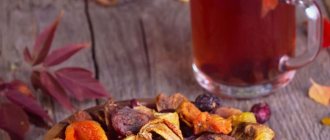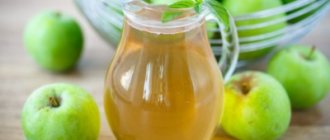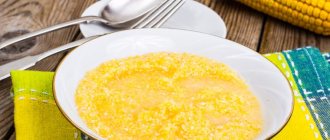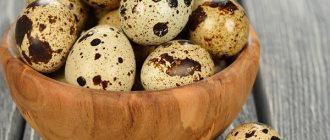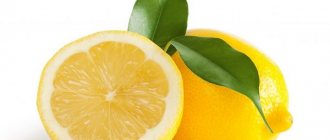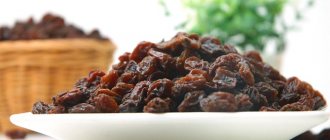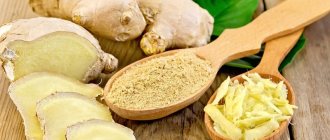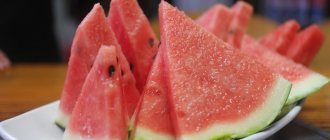Compotes are recommended for young mothers who breastfeed - a large amount of liquid stimulates greater production of breast milk. But most women do not know exactly what compotes nursing mothers can drink in the first month, so they are often faced with the development of an allergic reaction in the child.
Pediatricians answer such questions ambiguously - some recommend preparation from berries, others speak positively only about dried fruits. Young mothers themselves also speak ambiguously about compotes - some talk about the free use of the presented drink, while others claim the development of diathesis in the child. Perhaps such results are explained by the peculiarities of preparation. All the nuances of the presented issue will be discussed in detail in the article.
Benefits for breastfeeding
Dried fruits compote:
- contains vitamins (A, B1, B2, B3, B5, B6) and minerals (iron, calcium, phosphorus, magnesium, potassium) necessary for mother and baby;
- helps improve digestion, especially in case of constipation, which a woman often experiences after childbirth;
- adds variety to the limited diet of a nursing woman;
- helps the mother recover after childbirth and boost her immunity;
- improves the condition of skin and hair;
- uplifts and tones.
Fresh dried fruit compote will help mom diversify her diet and cope with constipation.
For lactation
A pregnant woman's consumption of dried fruit compote (prunes, dried apricots, raisins, dried apples, pears) increases the production of breast milk and also saturates it with useful microelements and vitamins necessary for the proper development of the baby.
To improve lactation, doctors recommend increasing a woman's fluid intake throughout the day. Dried fruit compote, when consumed in the recommended volume (100 ml per day, no more than 3 glasses per week), will have a positive effect on lactation.
If a child is constipated
Compote made from a mixture of dried fruits has a laxative effect. It will help cope with the problem of frequent constipation in an infant when taking medications is undesirable.
Add prunes or dried apricots to a mixture of dried fruits for compote, and you will get a mild but effective laxative effect.
About allowed fruits
There is a whole list of varieties of compotes for a young mother while breastfeeding. It is not so important here which berries and fruits to use - fresh or dried. The main thing is to decide on less allergenic berries and fruits.
The permitted ones include:
- Green apples are the safest fruit. It is allowed to drink apple compote while breastfeeding in small quantities so as not to provoke bloating in the baby. Apple compote using green fruits turns out to be the most beneficial for breast milk production.
- Pears - using pears allows you to completely eliminate the use of sugar in cooking - this is an excellent option for those whose child is allergic to sweets.
- Plums are a slightly sour drink that allows you to quench your thirst in the hot summer. But plums can weaken the baby’s intestines, so at first this drink is allowed to be drunk in small quantities.
- Apricots cannot cause allergies in a child, so drinking them is also allowed in unlimited quantities. The compote is sweet without adding sugar.
- Grapes – it is recommended to use only green and homemade ones. The drink turns out sweet.
Video
It is not recommended to use sugar when preparing compotes while breastfeeding. It is better to add a little sweetener to the poured mug and carefully monitor the condition of the baby’s skin. In the absence of diathesis spots, the amount of sugar can be gradually increased.
When can a nursing mother of a newborn not make dried fruit compote?
The mother of a newborn should not consume dried fruit compote in the first 2 weeks after birth. The baby may experience colic, diarrhea, increased gas formation, and abdominal pain.
And you should also not drink dried fruit compote if a nursing woman has the following diseases:
- stomach ulcer;
- diabetes;
- allergy.
Is an allergy possible?
Any dried fruit is a potential allergen. If you or someone in your family has allergies (food or plant allergies, it doesn’t matter), it is better not to introduce dried fruit compote into a nursing woman’s diet earlier than six months after giving birth.
Is it possible to drink dried fruit compote while breastfeeding?
When thinking about what sweets are possible while breastfeeding, every young mother wants to treat herself to something healthy and safe for her baby. One of these products is a sweet drink - dried fruit compote.
It is recommended to introduce dried fruit compote into the diet of a nursing woman 2 weeks after birth - from prunes and raisins, after 1 month - from dried apples, rose hips, dried apricots, after 2 months - from dried pears, after 4 months - from dates and figs.
Start drinking compote from only one type of fruit, 40 ml each. If the child is fine - there is no allergic reaction or digestive upset, you can increase consumption to 3 glasses per week.
When consumed in moderation within the time frame recommended by pediatricians, this tasty drink will bring tangible benefits to both mother and baby.
In the first month of a child's life
When the baby is 2 weeks old, you can add 40 ml of prune or raisin compote to the nursing mother’s diet. This should not be done before, in order to avoid colic or digestive problems in a newborn baby.
How to use it correctly and how much can you drink?
- Introduce into your diet a compote of only one type of fruit in a volume of 40 ml and carefully monitor the child’s well-being for 1–2 days.
- If everything is fine with the baby, you can gradually increase the daily intake of compote to 100 ml.
- Do not eat boiled fruits from compote - in the first month of a child’s life, you can only drink a decoction of them.
- Drink the compote in the first half of the day, warm, 15–20 minutes before breastfeeding your baby.
- Drink only a freshly prepared drink (dried fruit compote can be stored in the refrigerator for no more than two days).
- Drink no more than 3 glasses per week.
| Dried fruit | At what age can a nursing mother introduce this type of compote into her diet? |
| apples | 0.5-1 month |
| prunes | 2 weeks |
| raisin | 2 weeks |
| rose hip | 1 month |
| dried apricots | 1 month |
| pears | 2 months |
| dates | 4 months |
| figs | 4 months |
Reviews
Veronica, 39 years old
From 1 month I started drinking rosehip compote - it was both tasty and healthy. Then little by little I began to add other dried fruits - raisins, dried apricots, prunes. It has a good effect on lactation - more milk comes in. Prunes make both me and my son very weak, I added 1-2 of them to the compote, it tastes better with them.
Olga, 26 years old
At first I cooked it from just dried apples - that’s what the doctor said, from the first month of the baby’s life. And from about two, I started drinking compote from a mixture of dried fruits, from everything that was at home - dried apricots, raisins, prunes. It has a good effect on peristalsis.
Marina, 32 years old
I cooked it from dried apricots, and dried apricots from compote are a real delicacy for nursing mothers, when almost all sweets are prohibited. The child was doing well, starting at about a month and a half.
Vasilisa, 29 years old
I often drank dried fruit compote. From the month I started with apple and pear, first a third of a glass, then a glass a day. From the age of two months I started cooking prunes and dried apricots, sometimes adding raisins. The milk came better from a mixture of dried fruits; I drank it 15–20 minutes before feeding.
The most popular dried fruits
Dates
Dates have long been known to nursing mothers as an excellent milk extractor. Their consumption stimulates the production of oxytocin in the human body, and this hormone is extremely important for quality lactation. Dates are rich in potassium, magnesium, as well as some important amino acids that promote the production of serotonin - the “happiness hormone”. By consuming these dried fruits regularly, you can quickly cope with bad mood, fatigue, depression, while simultaneously strengthening your immune system, improving your memory and defeating insomnia.
Raisin
Raisins or dried grapes are a real storehouse of vitamins and microelements, including phosphorus, potassium, and nicotinic acid. Eating raisins helps normalize metabolic processes in the body, stimulates the brain and nervous system, improves sleep quality and increases the body's resistance to various diseases. In addition, dried grapes can be an excellent substitute for antidepressants, as they can effectively combat depression, loss of strength and other manifestations of postpartum depression.
Prunes
Prunes are rich in fiber, iron and potassium. With its help, many women easily and quickly solve problems with postpartum constipation. Moderate consumption of prunes during breastfeeding also helps normalize stool in infants. In addition, dried plums will be useful for mothers with weakened immune systems, suffering from chronic fatigue and unstable blood pressure. (you can also read about prunes for nursing mothers here)
Dried apricots
Dried apricot fruits, called dried apricots, contain large quantities of magnesium, potassium and other important trace elements and vitamins. Thanks to this composition, dried apricots have a beneficial effect on the nervous system of a nursing woman, helps restore strength after childbirth, has a positive effect on kidney function, helping to reduce swelling, and is also a mild laxative. In addition, dried apricots have a pleasant sweetish taste, which means they can replace harmful and high-calorie sweets and cakes. (you can also read about dried apricots for nursing mothers here)
What dried fruits can be used to make compote for a nursing mother?
For a woman on breastfeeding, you can cook compote from various dried fruits - dried apples, pears, dried apricots, prunes, raisins. The main thing is to follow the timing of introduction and the recommended amount of the new product.
For example, you can start drinking dried apricot compote while breastfeeding when the baby is 1 month old. Dried apricots are a source of vitamins, amino acids, and fiber. It has a diuretic and antiseptic effect, lowers blood pressure, strengthens the immune system and improves mood.
Is it possible to eat dried fruits from compote?
Dried fruits are among the foods approved by doctors for breastfeeding. Pediatricians recommend using them to replace sweets. While breastfeeding, you can start eating dried fruits no earlier than the baby is 1 month old. Dry compote fruits contain significantly fewer dangerous allergens than regular ones. However, first eat 1-2 pieces of one type and watch your baby’s reaction.
Recipes for making dried fruit compote
For a woman on breastfeeding, cook dried fruit compote, adding a minimal amount of sugar. Dried fruits are already sweet due to their natural fructose content. High sugar content can cause diathesis in the child and excess weight in the mother.
Do not add any unnecessary components (citric acid, vanilla, cinnamon) to the dried fruit compote. They can change the taste of breast milk, which can cause your baby to wean off the breast.
How to properly cook compote from dried apples in the first month after childbirth?
Use homemade dried apples - this is the only way you can be sure of their quality.
How to dry apples at home:
- Before drying, cut the apples into small even pieces, along with the peel and seeds. They contain the largest amount of vitamin C, iron, magnesium, potassium, calcium, phosphorus, as well as pectin.
- Choose a flat drying pan (such as a large baking tray).
- Distribute all the pieces evenly.
- Dry apples in a low-humidity area with access to fresh air. There should be no foreign odors in this room, otherwise the fruits will absorb them and be spoiled.
- The drying time for apples in the shade is 7-8 days, in the sun - 3-4.
Compound:
- dried apples 0.5 kg;
- water - 2l.
Preparation:
- Soak dried apples in water.
- Cook the soaked dried apples for about half an hour over low heat.
- Wrap the pan in a towel and place it in a warm place - this will make the compote richer and more aromatic.
Prune compote
Prune compote during breastfeeding is a source of useful elements (it contains a lot of iron) and has a good effect on lactation and digestion.
If the prunes are too dry, pre-soak them in warm water for 20–30 minutes.
Compound:
- water - 2l;
- prunes - 200 g;
- sugar - 4 tbsp. l.
Preparation:
- Heat water in a saucepan until boiling.
- Rinse prunes in cold water.
- Pour boiling water over the prunes for 3 minutes, then drain in a colander.
- Place the prunes into a pan of boiling water.
- Cook the compote for 10 minutes after boiling again.
- Add sugar, cook for another 5 minutes.
- Let the compote brew for a while.
- To make the compote transparent, strain it through cheesecloth or a fine sieve.
Compote from a mixture of dried fruits
Compote made from a mixture of dried fruits perfectly quenches thirst and can be consumed at any time of the year.
The more fruits you take, the more concentrated the compote will be. The finished compote can be diluted with boiled water to the consistency you need.
Compound:
- 400 grams of a mixture of dried fruits (dried apricots, raisins, prunes, apples, pears);
- water - 3–4 liters;
- sugar - 150 g or to taste.
Preparation:
- Carefully sort the mixture of dried fruits so that no spoiled fruits get into the compote.
- Pour the mixture with cool water and leave for 1 hour.
- Rinse the berries well in running water.
- Pour drinking water over the dried fruit mixture and place the pan on the heat.
- Once boiling, reduce heat and simmer for 30–40 minutes.
- Add sugar, stir and bring to a boil again.
- Leave the compote to steep, covered with a towel, until it cools down.
Dried fruits during breastfeeding
Dried fruits and berries are dried fruits. After they have been left in the sun or processed in a dryer at the factory, their moisture content remains approximately 20%.
The main property of dried fruits is their ability to be stored for a long time without losing the bulk of their beneficial substances.
Nowadays, there are any number of methods for preparing dried fruits: dried in the sun or in the shade; using a dehydrator at the enterprise; treated with chemicals, pre-boiled, doused with glaze, sprinkled with powdered sugar.
Dried fruits include:
- Dried fruits, including: dried apricots, prunes, dates, apples, pears, figs; from exotic mango, papaya, persimmon, coconut.
- Dried berries, for example: raisins, rose hips, cherries; less often raspberries, strawberries, currants.
What are the benefits of dried fruits?
Dried fruits and berries are called “a storehouse of vitamins and microelements.” Some say that dried fruits contain the same amount of nutrients as fresh fruits. Others argue: even more than fresh ones, because everything valuable is present in concentrated form. However, if we talk about preserving vitamins without freezing, dried fruits definitely leave their counterparts far behind.
Dried apples are just as healthy as fresh ones.
Here is an incomplete list of what dried “gifts of nature” are rich in:
- vitamins A, C, E, group B;
- potassium;
- magnesium;
- manganese;
- iron;
- cellulose;
- fructose;
- pectin;
- beta-carotene;
- polyphenols.
To be fair, let’s add a “fly in the ointment” to the information about vitamin C. As a water-soluble element, it has weak bonds and disintegrates during long-term storage; afraid of light, heat, high humidity. Result: the dried product remains without a significant part of ascorbic acid (vitamin C).
In general, dried fruits, having a powerful arsenal of useful substances, have a beneficial effect on almost all systems of the human body:
- on cardiovascular;
- to the circulatory system;
- to the immune;
- nervous;
- on the digestive.
By regularly snacking on dried fruits or eating them as dessert, you will lower your cholesterol levels and increase your hemoglobin levels; improve complexion and strengthen hair; Recharge with a good mood, energy and easily cope with physical activity.
Dried fruits help hair become strong and beautiful
Fructose, which is found in dried fruits, successfully replaces sugar, which is more harmful to the body. But fructose is not a dietary product, so its excessive consumption is contraindicated for those who lead a healthy lifestyle.
The place of dried fruits in the menu of a nursing mother
Doctors leave no doubt: during breastfeeding, mothers must add dried fruits and berries to their diet. Winter and spring are the best time for dried fruits: fresh products contain few vitamins, so the body weakens and viruses attack. And here a whole army of useful substances rushes to the rescue. In addition to strengthening the immunity of herself and her baby, the mother receives with dried fruits:
- improving milk flow (dates are responsible for this);
- prevention of constipation in yourself and your baby (prunes);
- improvement of appearance (dried apricots);
- burst of energy (raisins).
It is easier for a child’s body to absorb vitamins and microelements from dried fruits than from fresh fruits. As a result, the following is supplied to the baby with the mother’s milk:
- vitamin A - vitamin of growth and vision;
- B vitamins - help form the nervous system, muscle tissue and skeleton, supply blood to the brain and spinal cord;
- vitamin C - improves immunity;
- calcium - helps the heart function;
- phosphorus - affects bone formation;
- magnesium - helps form bone tissue and establish carbohydrate metabolism.
Both mother and baby benefit greatly from dried fruits.
Conclusions:
- Introduce dried fruit compote into your diet no earlier than 2 weeks after birth.
- Choose dried fruits for compote carefully. The addition of artificial colors and stabilizers is indicated by too bright color of dried fruits.
- Be sure to start drinking compote from one type of fruit - dried apples, pears or prunes, 40 ml in the morning.
- Gradually increase the amount of compote you drink. The maximum dose per day is 100 ml.
- If your baby experiences an allergic reaction or abdominal pain, immediately stop using the compote and consult a doctor.

